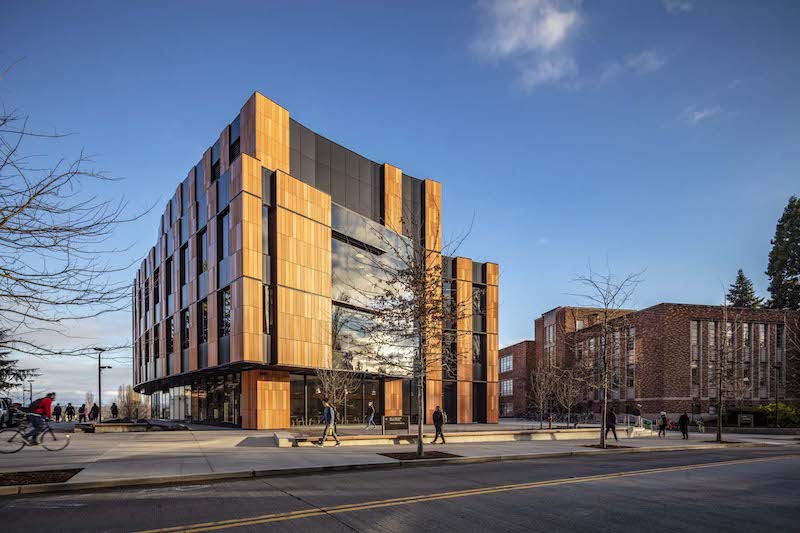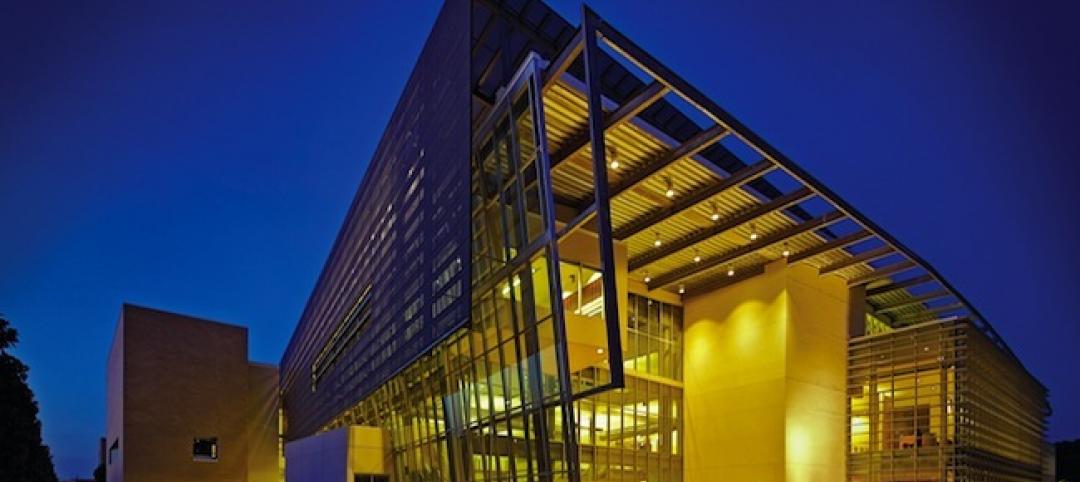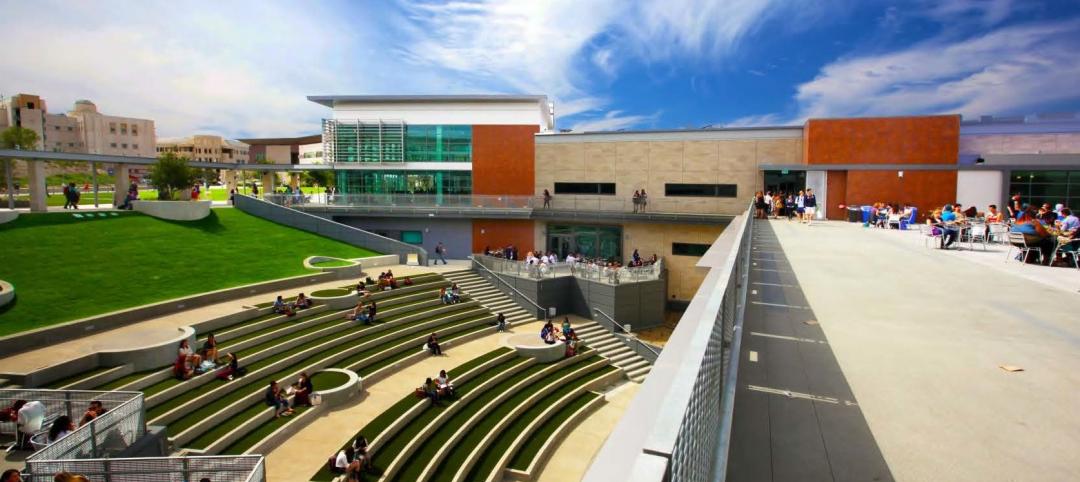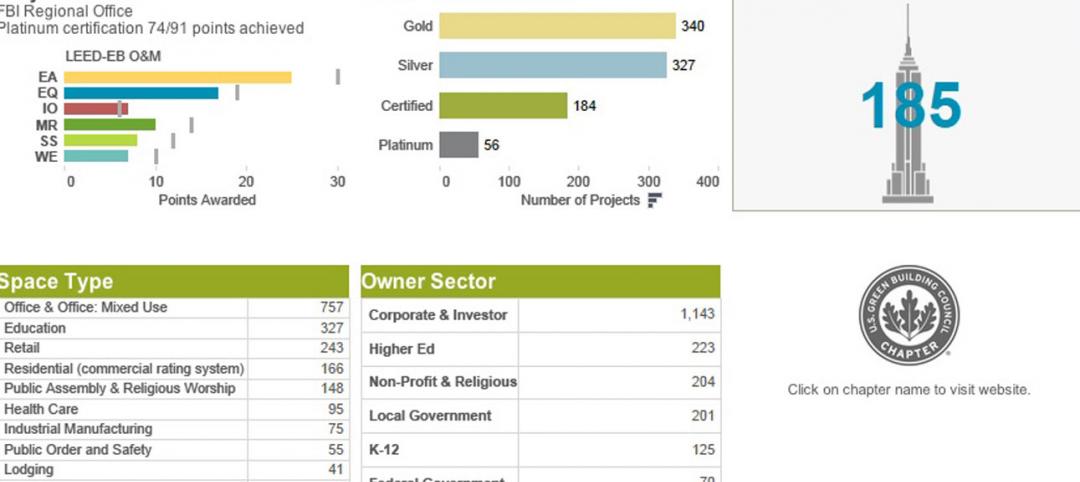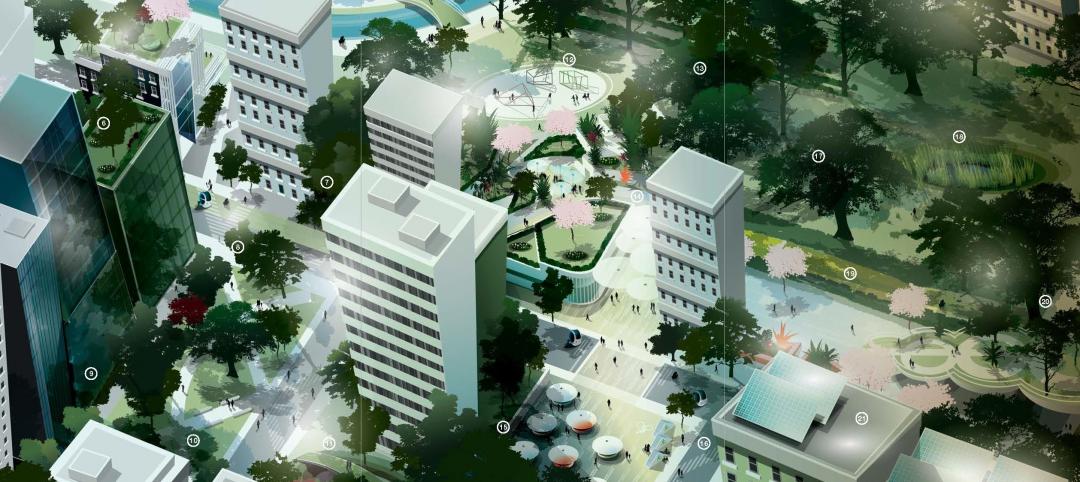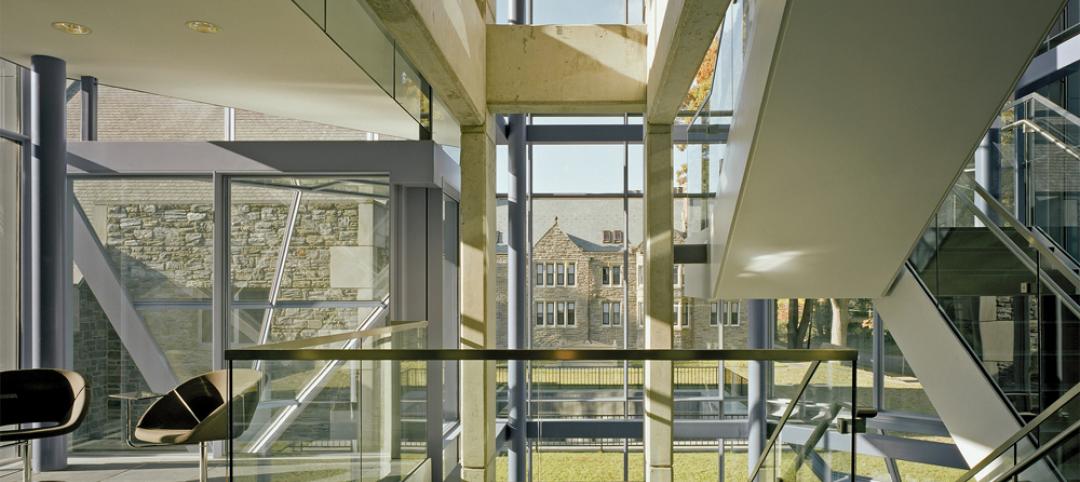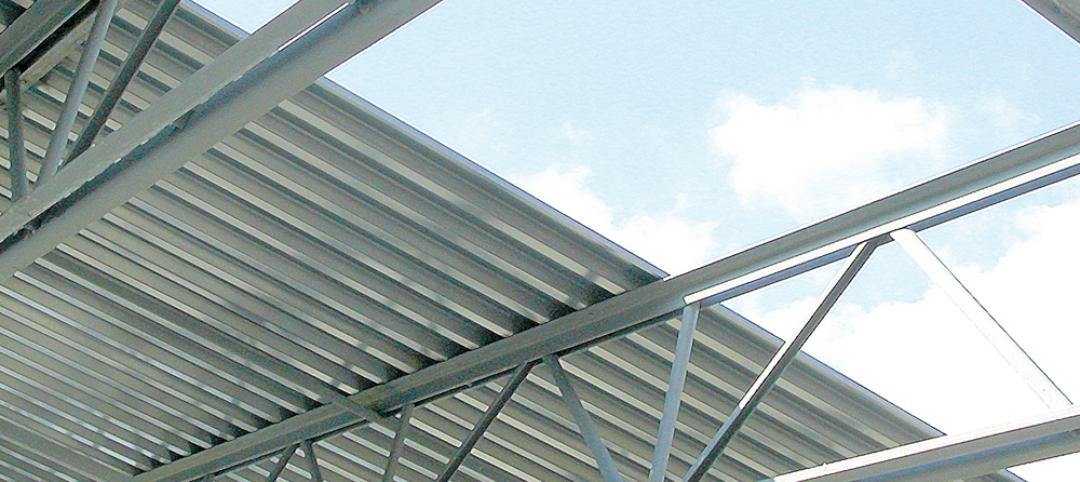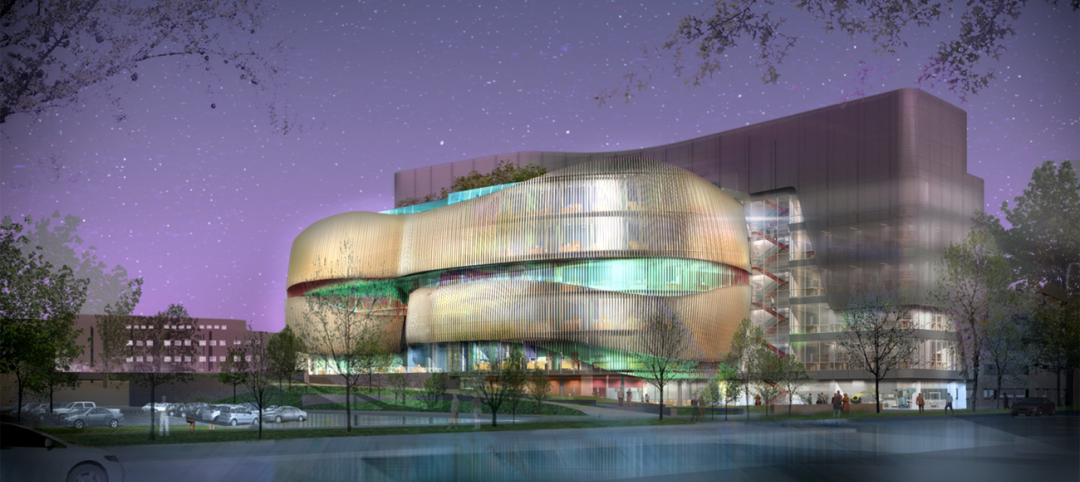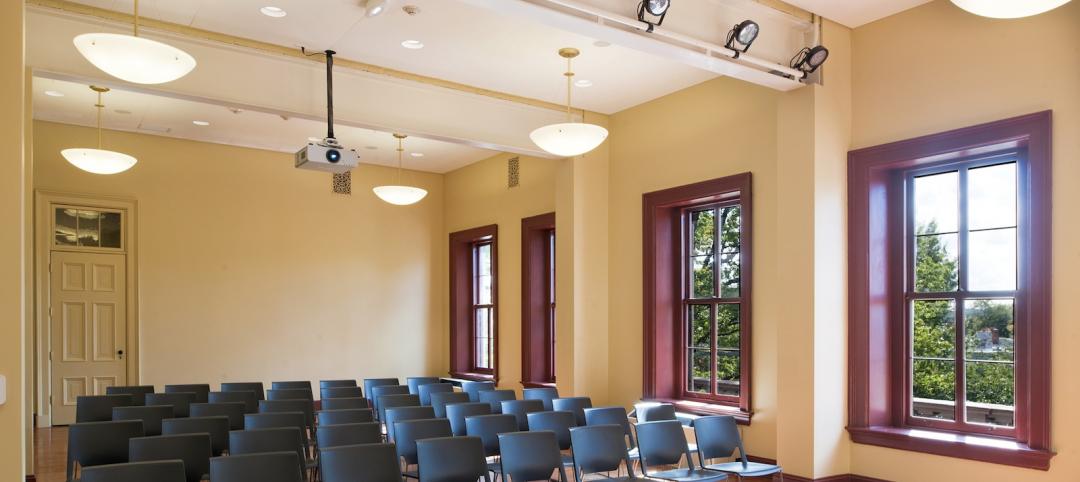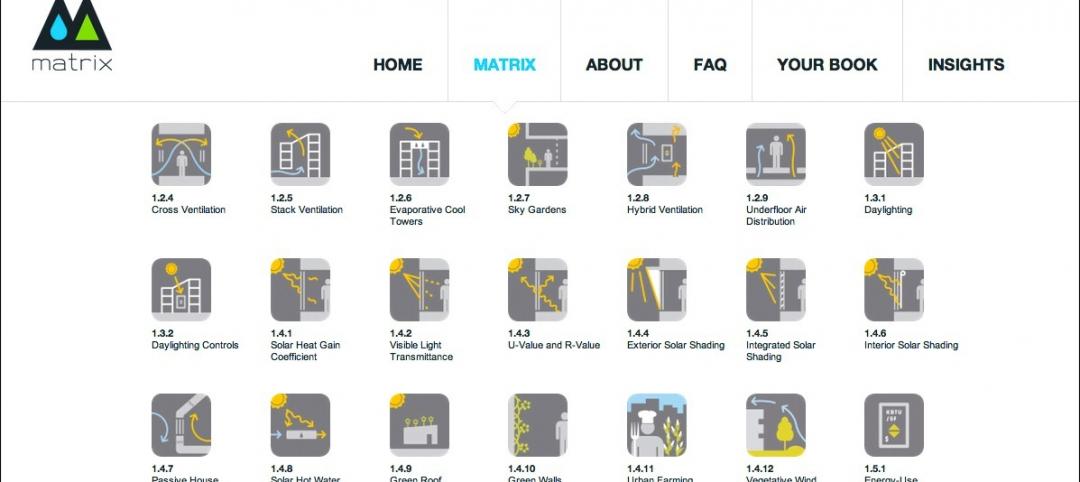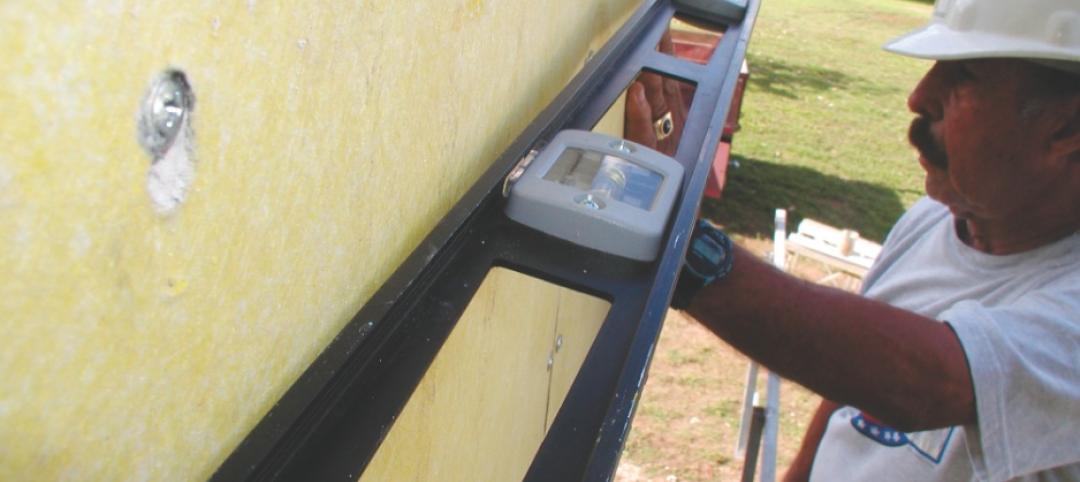Since 2003, the University of Washington’s Paul G. Allen School of Computer Science and Engineering has grown considerably. The program outgrew the existing 165,000 sf building and found itself needing more space.
Enter the Bill & Melinda Gates Center for Computer Science & Engineering. Designed by LMN Architects, the 140,000-sf facility expands the current capacity of the school and provides research spaces, classrooms and lecture spaces, faculty offices, and a new home for the School’s undergraduate majors. A central, naturally-lit atrium provides visual and physical connections to all the floors and acts as the school’s central hub. At the roof-level, an event center will support a wide range of educational needs, industry collaborations, and outreach functions. A cafe activates the primary entry and acts as a transition between the exterior landscape to the central atrium.
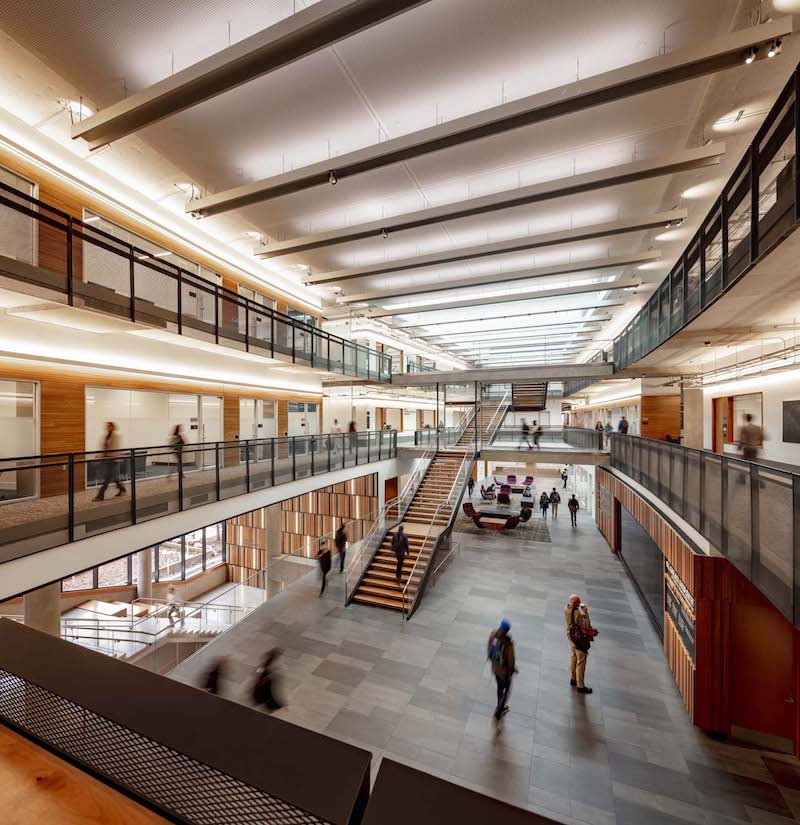
The building’s exterior features a two-sided curving form that responds to the site’s topography and the flow of campus circulation. The building’s facade system of terra cotta panels in four texture types acts as a juxtaposition against the modern black glass and metal.
See Also: University of Arizona Student Success District begins construction
The completed project is targeting LEED New Construction Silver.
Related Stories
| May 10, 2014
How your firm can gain an edge on university projects
Top administrators from five major universities describe how they are optimizing value on capital expenditures, financing, and design trends—and how their AEC partners can better serve them and other academic clients.
| May 1, 2014
First look: Cal State San Marcos's posh student union complex
The new 89,000-sf University Student Union at CSUSM features a massive, open-air amphitheater, student activity center with a game lounge, rooftop garden and patio, and ballroom space.
| Apr 29, 2014
USGBC launches real-time green building data dashboard
The online data visualization resource highlights green building data for each state and Washington, D.C.
Smart Buildings | Apr 28, 2014
Cities Alive: Arup report examines latest trends in urban green spaces
From vertical farming to glowing trees (yes, glowing trees), Arup engineers imagine the future of green infrastructure in cities across the world.
| Apr 16, 2014
Upgrading windows: repair, refurbish, or retrofit [AIA course]
Building Teams must focus on a number of key decisions in order to arrive at the optimal solution: repair the windows in place, remove and refurbish them, or opt for full replacement.
| Apr 9, 2014
Steel decks: 11 tips for their proper use | BD+C
Building Teams have been using steel decks with proven success for 75 years. Building Design+Construction consulted with technical experts from the Steel Deck Institute and the deck manufacturing industry for their advice on how best to use steel decking.
| Apr 8, 2014
Science, engineering find common ground on the Northeastern University campus [slideshow]
The new Interdisciplinary Science and Engineering Building is designed to maximize potential of serendipitous meetings between researchers.
| Apr 2, 2014
8 tips for avoiding thermal bridges in window applications
Aligning thermal breaks and applying air barriers are among the top design and installation tricks recommended by building enclosure experts.
| Mar 26, 2014
Callison launches sustainable design tool with 84 proven strategies
Hybrid ventilation, nighttime cooling, and fuel cell technology are among the dozens of sustainable design techniques profiled by Callison on its new website, Matrix.Callison.com.
| Mar 20, 2014
Common EIFS failures, and how to prevent them
Poor workmanship, impact damage, building movement, and incompatible or unsound substrate are among the major culprits of EIFS problems.


